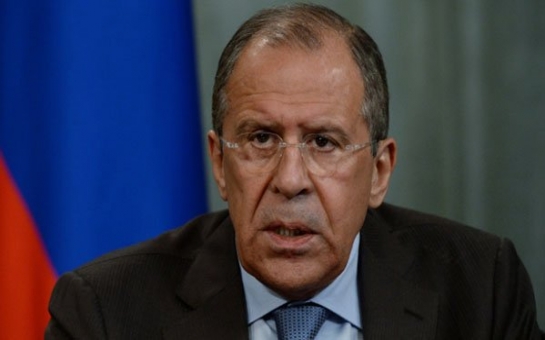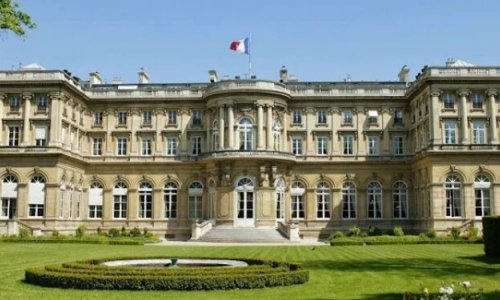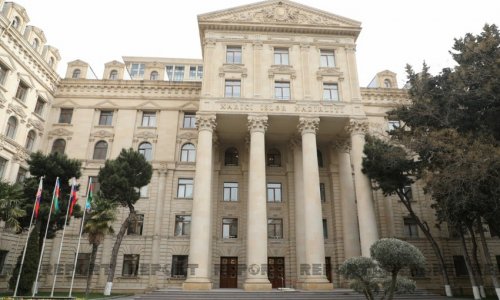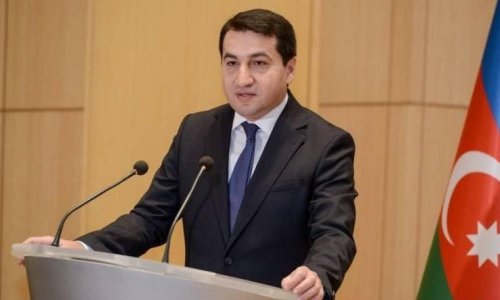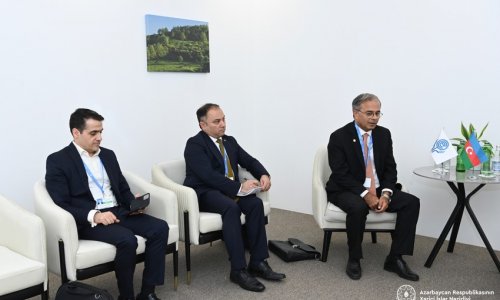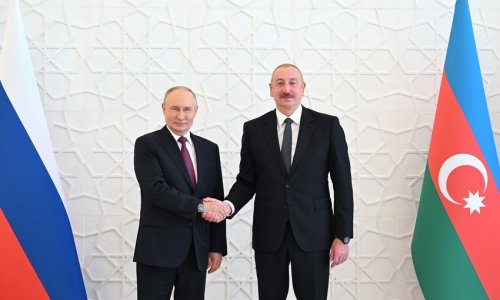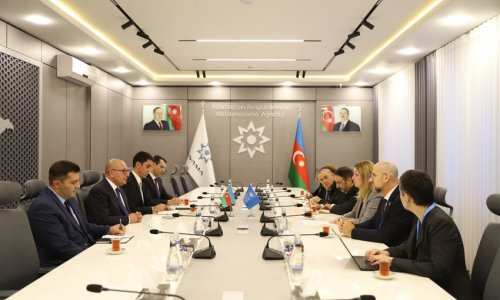Russia is putting the moves on Azerbaijan, as the South Caucasus country’s two neighbors, Georgia and Armenia, prepare to formalize partnerships with rival unions. But ever the pragmatic belle, Baku is resisting Russia’s advances.
While Azerbaijan’s neighbors, Georgia and Armenia, already are committed to deepening ties with the European Union (on June 27) and the Eurasian Economic Union (by July 1), respectively, Azerbaijan, the largest and richest country in the South Caucasus, remains up for grabs.
Suitors from the Kremlin have lined up to woo Baku. The first visit occurred in early June when Russian Economic Minister Alexei Ulyukayev arrived in the Azerbaijani capital to chat about economic cooperation and invited Azerbaijan to join the Eurasian Economic Union.
Then, Russian Foreign Minister Sergei Lavrov dropped in on June 18-19 for a continuation of what he described as “a most active dialogue.” A triple whammy of visits will take place late this month, with trips by Russian Deputy Prime Minister Dmitry Rogozin, who oversees military-industrial matters, Development Minister Irog Slyunayev and State Duma Speaker Sergei Narishkin.
Meanwhile, during a visit to Baku earlier this month, José Manuel Barroso, president of the EU's executive arm, the European Commission, announced plans for a “partnership on the strategic modernization” of Azerbaijan. The scope of this EU offer was not immediately clear.
But some things already are clear to the Kremlin. The EU accounts for 42 percent of Azerbaijan’s overall trade volume, and can serve as a major market for Azerbaijani gas exports. Moscow, therefore, is keen to prevent Baku and the EU from developing closer ties. Russia also does not want to see Azerbaijan expanding relations with Ukraine’s new government, or with the North Atlantic Treaty Organization, which has begun to assert itself in Ukraine’s neighborhood.
Azerbaijan showing support for Ukraine’s territorial integrity in the United Nations or the Council of Europe is one thing, but Moscow “wants to prevent real support from Baku for the new Ukrainian president, [Petro] Poroshenko, in the form of investments, loans and so on,” commented political analyst Elhan Shahinoglu, head of the non-governmental Atlas research center.
The Russian government, which is grappling with a large-scale capital flight out of Russia, likes the look of energy-rich Azerbaijan’s cash. “Russia is jealous that Azerbaijan is planning to invest $18 billion into the Turkish economy by 2019, which includes big projects in oil refining … and wants Baku to be also active in the Russian market,” said Shahinoglu.
With an eye on boosting Azerbaijani investment in Russia, a Russian-Azerbaijani economic forum, featuring the participation of more than 200 Russian entrepreneurs, is due to be held on June 23-24 in the city of Gabala. Local businesses and state-owned companies are unlikely to invest heavily in Russia amid Western sanctions and projected Russian growth of 0.5 percent. Even so, the Gabala forum indicates that Baku itself will initiate things, said Shahinoglu.
Azerbaijani commentators emphasize that any search for investment opportunities does not signal that Azerbaijan is going to enter a Russia-led economic union. “Russian ministers could offer anything, but one should consider the realities,” said Rasim Musabekov, a non-partisan member of parliament’s International Relations Committee. “Baku will not benefit from membership in these unions simply because Azerbaijan’s trade turnover with the countries of the Eurasian Union [Belarus, Kazakhstan and Russia] amounts to less than 10 percent of the country’s foreign trade.”
Lavrov told a June-18 news conference in Baku that “no formal or official invitations” to join the Eurasian Union had been extended to Azerbaijan, but that “we would react positively if Azerbaijan, or any other country would decide to [join].”
In diplo-speak, that likely means that the Kremlin has accepted Baku’s position of non-alignment, noted Shahinoglu.
Moscow has limited levers with which to exert political or economic pressure on Baku. Unlike other former Soviet republics, Azerbaijan contains no large ethnic Russian minority, hosts no Russian military bases and has no Russian-controlled economic assets that could give Moscow political influence.
An earlier measure at extending Russia’s influence in the former Soviet Union – the offer of Russian passports to former Soviet citizens who can pass a Russian-language exam – does not appear to have generated much interest in Azerbaijan. The Russian Embassy in Baku declined to comment, but migration expert Azer Allahveranov, head of the non-governmental organization Hayat, observed that those Azerbaijanis who wanted Russian passports – primarily, the tens of thousands of labor migrants in Russia – had already obtained them.
The Azerbaijani parliament has taken steps to discourage Azerbaijani nationals from obtaining Russian passports. Amendments to Azerbaijan’s citizenship law stipulate that those who acquire other citizenships will automatically lose their Azerbaijani citizenship. Those who do not inform the government within a month’s time of any new passport risk criminal prosecution.
Bakudaily.az

